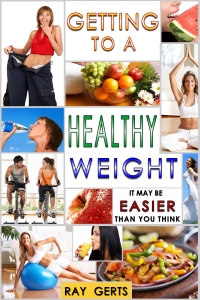Anti-sugar fever seems to be on the rise. Last week, a friend who does not have type 2 diabetes asked me about my diabetes diet: “How many carbs can you eat without raising your blood sugar?” Another pal is on a 21-day-cleanse – no sugars allowed. And folks in my neighborhood recently formed a support group for going cold turkey on sugar, which one member claimed is harder than giving up cigarettes: “No one wants you to smoke, but they’re happy to see you eat a slice of birthday cake.”
With the publication of books like Gary Taubes’ The Case Against Sugar, in which he blames sugar for health problems like obesity, heart disease and, of course, diabetes, the health-conscious are taking heed. Yes, I agree, but sugar isn't the only problem we have with processed foods. Yes, you see sugar in everything including foods that aren't sweet. So what's the deal? Some research indicates that sugar can cause a food dependence. This might be the reason you see sweeteners on all the food labels. Is there any reason we need sugar in white bread? I looked in cookbooks and I don't see it on the list of ingredients.
I have to admit, all of the hysteria is kind of amusing to me. To treat my type 2 diabetes, I abandoned sugar ages ago, so not eating the sweet stuff is second nature to me by now. Scanning labels for sugar’s aliases – glucose, simple syrup, fruit sweetener – has also become an ingrained habit. And after years of listening to people question my choices – “Are you sure you can’t have a bite?”, “One cupcake surely won’t hurt?!” – the idea of people without type 2 diabetes jumping onto the anti-sugar wagon seems tinged with irony.
Although I’m unconvinced that sugar is the root of all evil or the root of all disease, I’m also pretty sure that it’s not just “empty calories.” And while some diabetes groups preach sugar can be eaten “in moderation” my personal glucose monitor doesn’t agree.
So how hard is it to abandon sugar? That depends, I think, on how much sugar you’re accustomed to eating. If you’ve got a five-Coke-a-day habit, you’re probably going to have a rougher patch than if you only indulge in dessert on weekend nights.
Think about your situation, "do you have a food dependence?" It might not be sugar, it might be salty foods or fatty foods, but any of these can cause a food dependence and can cause health problems.
Wherever you fall on the sugar spectrum, if you are thinking of going cold turkey, (that's really the best way) here are a few tips:
- Seek support. Support groups can help if you’re having trouble going it alone. Talking about what you miss – chocolate chip cookies, mint ripple ice cream, a sugar high – might make it easier. After all, misery loves company.
- Journal. Keeping a journal can keep you honest. Dieters have had a lot of success jotting down their daily intake. Logging your daily sugar intake before you try to stop might be a similarly powerful wake-up call.
- Read labels. Sugar lurks in the darnedest places – from sugar cured bacon, to low-calorie fruit spreads to sugar tobacco-cured cigarettes. Familiarize yourself with its many guises and read carefully.
- Substitute. If you need a hit of sweetness, I find frozen blueberries can do the trick. Or a little whipping cream mixed with vanilla. While you don’t want to trade in everything for artificial sweeteners, if you like the taste, ten-calorie Jello can make a good transition treat.
- Forgive yourself. Going cold turkey on sugar isn’t easy. If you do give into an Oreo cookie today, remember that there’s always tomorrow.

No comments:
Post a Comment